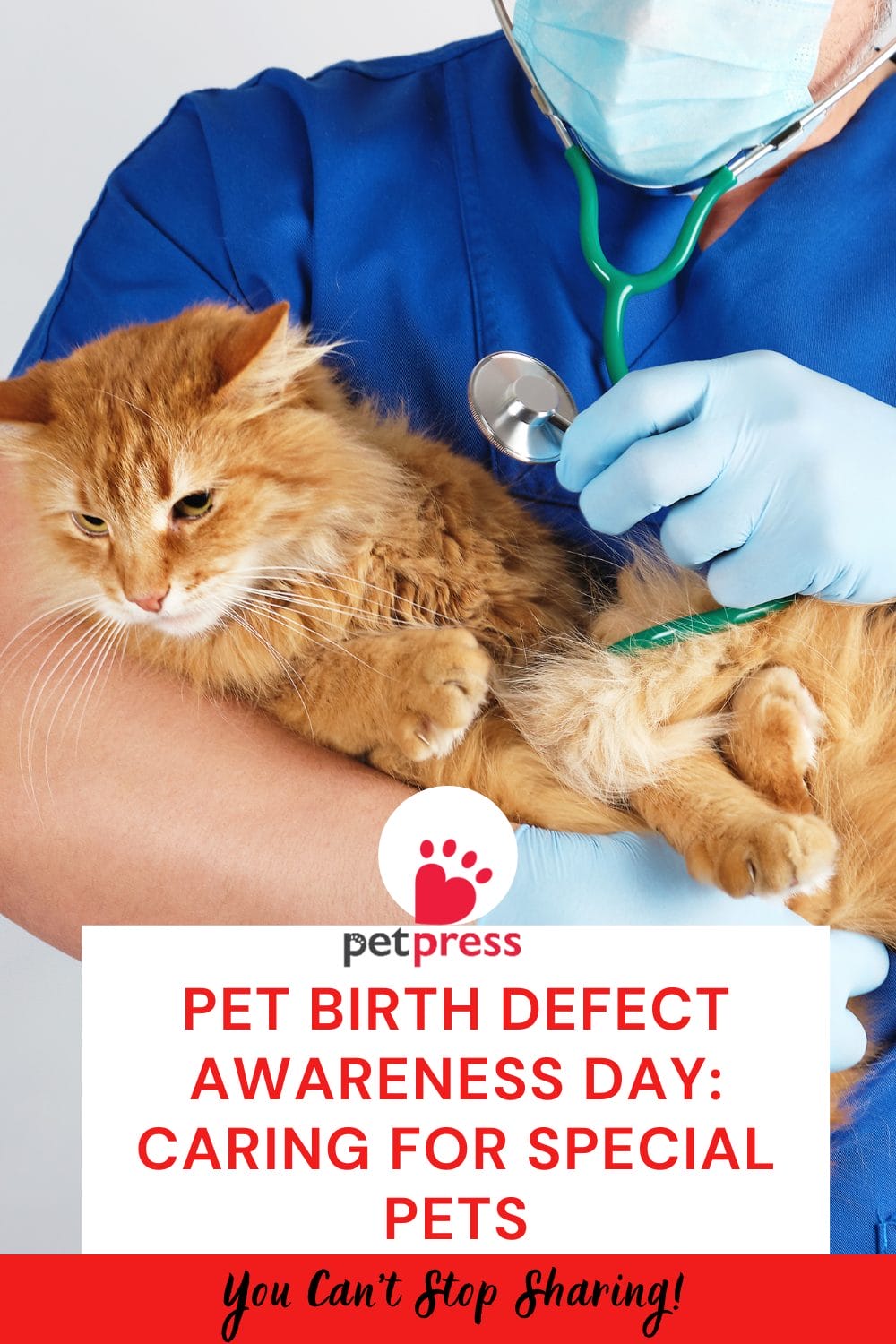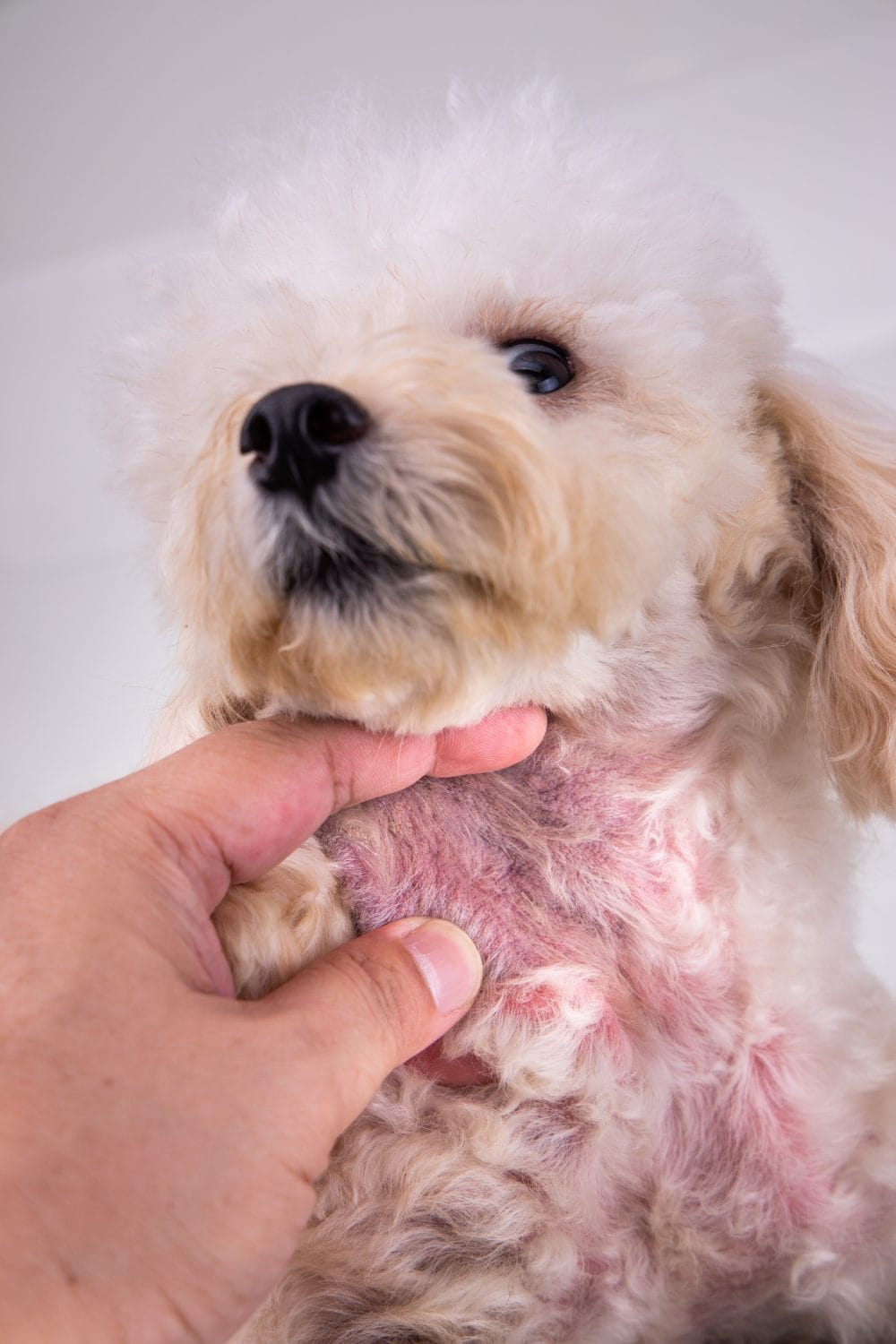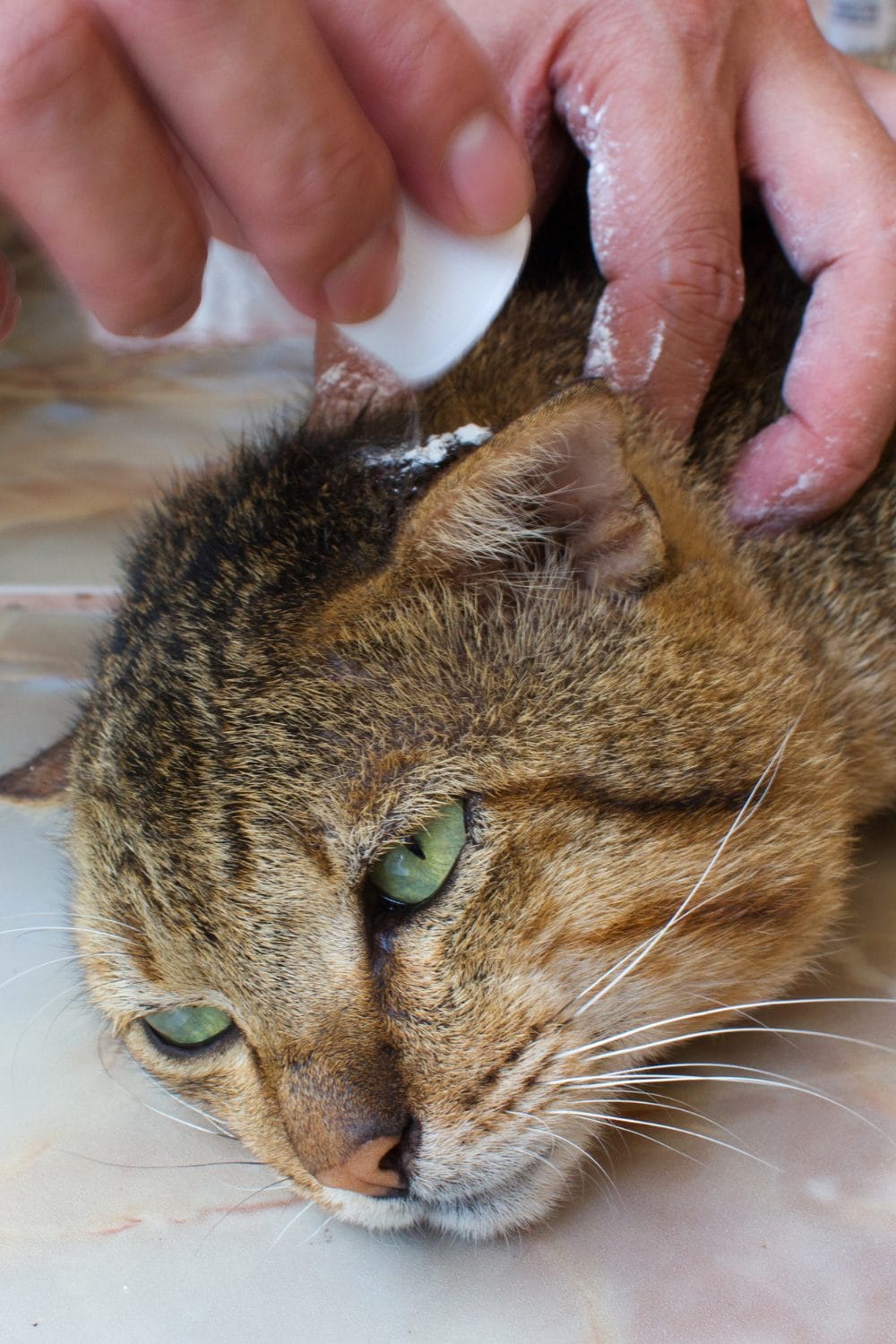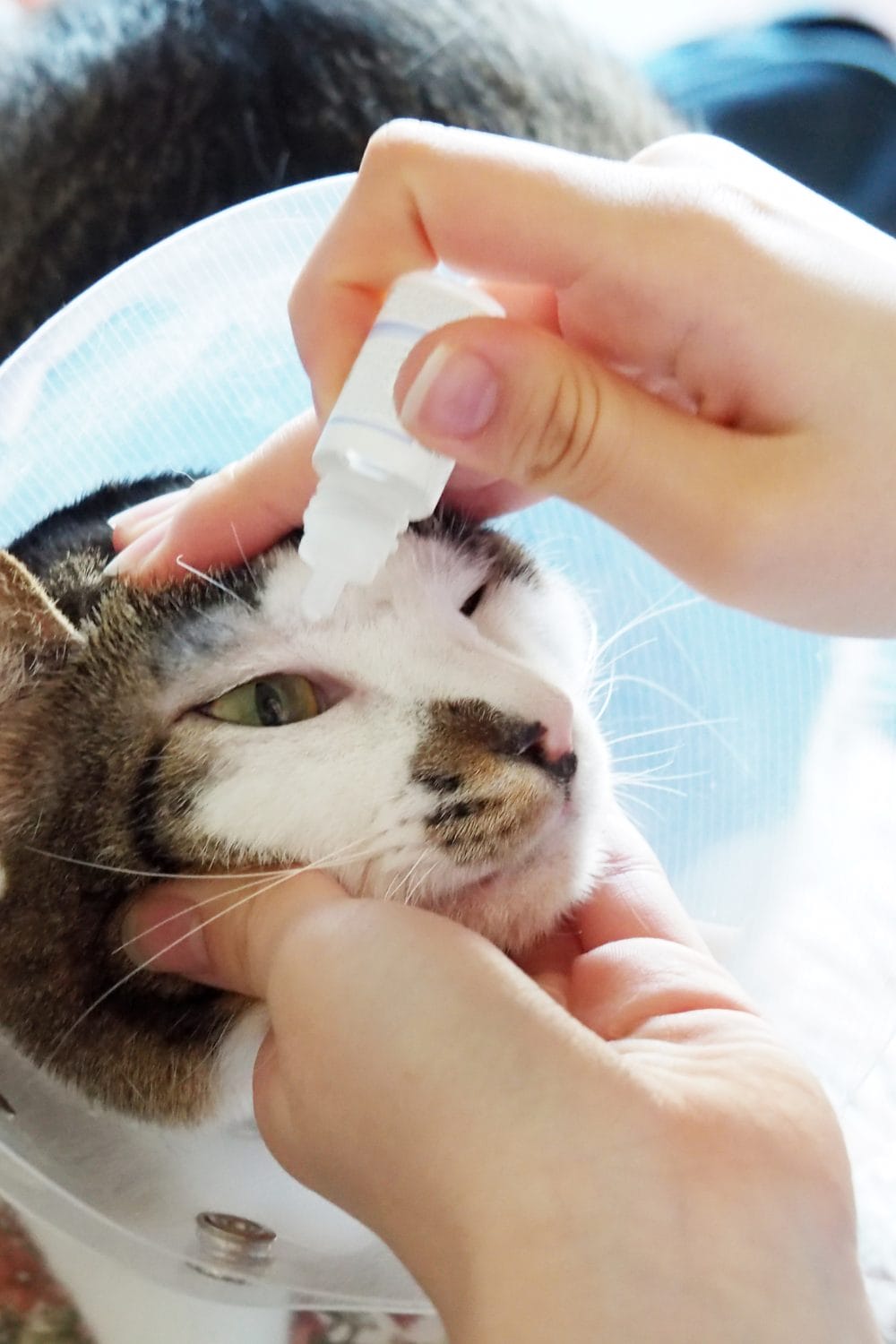
On September 13th, pet lovers and advocates meet every year to observe Pet Birth Defect Awareness Day.
This special day is dedicated to raising awareness about the birth defects that affect our beloved pets and educating people about how to properly care for pets with these challenges.
Birth defects in pets, like in humans, can vary in severity and impact their quality of life.
With the right knowledge, care, and support, many animals can live fulfilling, healthy lives.
In this blog, we’ll dive into the history and significance of Pet Birth Defect Awareness Day, discuss why it’s important to spread awareness, and provide guidance on how to care for and address birth defects in pets.
History of Pet Birth Defect Awareness Day
Pet Birth Defect Awareness Day was established by the non-profit organization MBJungle Foundation in 2014 to bring attention to pets born with congenital disabilities.
The day aims to promote awareness and understanding of how these defects affect pets’ lives and the options available to manage or treat these conditions.
MBJungle Foundation launched this day to help reduce the stigma associated with pet birth defects and to encourage pet owners, veterinarians, and animal welfare advocates to come together and share knowledge, support, and resources.
Significance of Pet Birth Defect Awareness Day

The significance of Pet Birth Defect Awareness Day extends beyond the awareness of physical abnormalities.
It is about celebrating the resilience of animals who live with birth defects, highlighting their potential for happy, fulfilling lives.
This day serves to educate current and prospective pet owners about the realities of caring for pets with special needs, while also encouraging compassion, understanding, and early detection.
Many pet owners may not even realize that their pets are born with defects, as some conditions may not manifest immediately.
Early intervention can prevent complications, enhance the pet’s quality of life, and provide emotional support to pet owners dealing with the uncertainty of their pet’s condition.
Why is There a Need for Awareness About Pet Birth Defects?
Awareness is critical when it comes to pet birth defects, and here’s why:
Early Detection and Treatment
Just like in human medicine, early detection of birth defects in pets can improve the chances of effective treatment.
Many conditions, if caught early, can be managed with surgery, medication, or lifestyle changes. Without awareness, pet owners might overlook the symptoms until it’s too late for intervention.
Destigmatization
Some pets born with defects are often abandoned or euthanized due to the stigma and perceived difficulty of care.
By raising awareness, we can educate people that these pets, while needing special care, are capable of living joyful, loving lives.
Better Care
Awareness leads to better caregiving.
Pet owners who understand their pet’s unique condition are better equipped to provide them with a loving, supportive home.
Promote Adoption
Pets with birth defects are often overlooked in shelters.
By spreading awareness about their resilience and adaptability, more people may be inclined to adopt pets with special needs.

How to Take Care of Pets with Birth Defects
Caring for a pet with birth defects may come with challenges, but with the right approach, you can give your pet a fulfilling and happy life. Here are some essential tips:
Consult a Veterinarian Regularly
The first step in caring for a pet with a birth defect is to consult a veterinarian who can accurately diagnose and suggest a treatment plan.
Your vet will assess your pet’s condition and provide guidance on any medications, surgeries, or lifestyle changes that may be required.
Create a Comfortable Environment
Pets with physical or neurological defects may need accommodations in their environment.
For example, ramps might replace stairs, or softer bedding may be needed to support pets with joint issues.
Nutrition and Special Diets
Some birth defects can be managed with special diets or supplements.
Your vet can recommend the best nutrition plan based on your pet’s condition to support their overall health and well-being.
Exercise and Mobility
Pets with limb deformities or motor issues may require physical therapy or tailored exercises to improve mobility.
In some cases, assistive devices like wheelchairs for dogs can help them get around.
Emotional Support
Pets with birth defects might face emotional and psychological challenges.
Providing them with affection, attention, and interaction is just as important as meeting their physical needs.
Can Pet Birth Defects Be Removed?

While not all pet birth defects can be fully “removed,” many can be treated or managed.
Some conditions can be corrected through surgical procedures, while others may require lifelong management.
Here’s a breakdown:
Surgical Solutions
Certain birth defects, such as cleft palates, heart defects, or hernias, can often be corrected with surgery.
Early detection is vital to ensure the best outcomes for these procedures.
Medication
In cases where surgery isn’t an option, medication can often help manage symptoms.
For instance, pets with neurological defects or seizures may be treated with anticonvulsants or other medications to help regulate their condition.
Assistive Devices
For pets with physical deformities, mobility aids like prosthetics or wheelchairs can significantly improve their quality of life.
Therapeutic Interventions
Physical therapy, hydrotherapy, and other non-invasive treatments can improve mobility and reduce discomfort for pets with limb or joint defects.
While the ultimate goal might not always be to “remove” the defect, providing the necessary treatments can lead to a much-improved quality of life for your pet.
Conclusion
Pet Birth Defect Awareness Day is a significant reminder of the importance of recognizing, understanding, and supporting pets born with congenital disabilities.
While birth defects may present challenges, they don’t define a pet’s ability to live a happy and fulfilling life. With proper care, love, and medical attention, these pets can thrive.
By raising awareness, we can break down the stigma around pet birth defects, promote early detection and treatment, and encourage more people to consider adopting pets with special needs.
Together, we can make a difference in the lives of these remarkable animals.
FAQs

Pet Birth Defect Awareness Day is observed on September 13th to raise awareness about the congenital defects that affect pets, educate pet owners, and encourage proper care and early intervention.
Common birth defects in pets include heart defects, limb deformities, cleft palates, hernias, and neurological issues. These can vary widely depending on the breed and species.
Yes, many birth defects can be treated or managed with surgery, medication, or lifestyle changes. Early detection is key to improving treatment outcomes.
While pets with birth defects may require extra attention, they can still lead happy, healthy lives. With the right care, many of these pets can thrive and provide immense joy to their owners.
Absolutely! Pets with birth defects deserve loving homes, and with proper care, they can be wonderful companions. By adopting, you provide them with a chance to live a fulfilling lif
- Best Shampoo for Sensitive Skin Dog Grooming: 2026 Guide - February 12, 2026
- 40+ Aesthetic Names for White Dogs (2026 Unique & Rare List) - February 6, 2026
- 50+ Cool Snake Names for 2026: Expert-Picked & Rare Ideas - January 29, 2026


GIPHY App Key not set. Please check settings